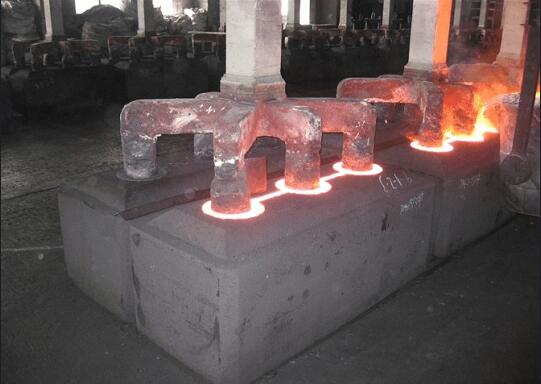The Prebake anode carbon for electrolytic aluminium were born almost at the same time with the modern aluminum smelting method.Anode materials can be divided into two categories: anode paste and pre-baked anode carbon block.The anode paste is used directly on the self-roasting aluminum electrolytic cell without roasting.Pre-baked anode is roasted in carbon plant and used as anode in pre-baked aluminum electrolytic cell.

The Prebake anode carbon for electrolytic aluminium is usually installed on the upper part of the electrolytic cell, and a strong DC current of 60-300KA is transmitted through the anode into the electrolyte.The resistivity of carbon anode for 50-70 mu Ω. M, plus a guide rod and the contact resistance, normal aluminium electrolytic production, the consumption of carbon anode voltage drop is 300-500 mv, accounted for 10% 15% of cell voltage drop.A complex electrochemical reaction (anodic reaction) occurs at the base of the carbon anode in contact with the molten electrolyte to decompose the alumina.In the presence of carbon, the final products of the anode are CO and CO2.In aluminum electrolysis production, the average daily consumption of carbon anode is 1-2cm, and it is the main content of anode work to add new anodic paste to the upper part of the electrolytic cell regularly (to the self-baking anodic cell) or to replace the pre-baking anodic cell regularly (to the pre-baking anodic cell), so as to keep the anode working normally continuously.










